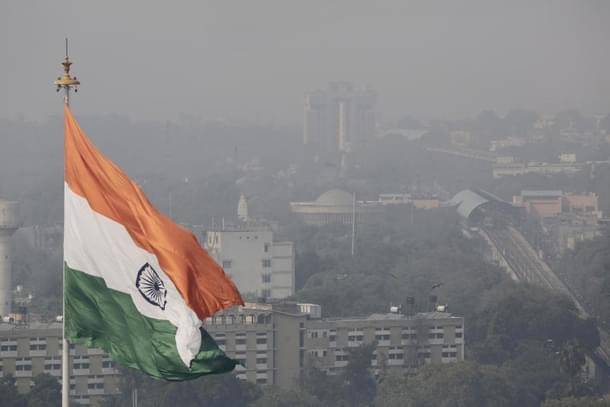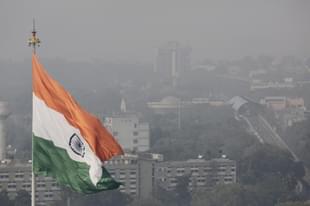Insta
As Stubble Burning Begins In Punjab And Haryana, Delhi's Air Quality Deteriorates To 'Very Poor'
Swarajya Staff
Oct 07, 2020, 04:36 PM | Updated 04:36 PM IST
Save & read from anywhere!
Bookmark stories for easy access on any device or the Swarajya app.


With the smoke from the burning of paddy stubble in Punjab and Haryana blowing to the national capital and its surrounding regions, the air quality of the region dipped to the 'very poor' category on Wednesday (7 October). This marks the beginning of the highly-polluted season that goes on to last for about three months.
With stubble burning, the air pollution reaches a crescendo in Delhi-NCR every winter, when pollutants combine with the suspended water droplets in the lower atmosphere to form a thick blanket of noxious smog, thus creating health hazards for the residents.
According to the data of the Central Pollution Control Board, out of 35 pollution monitoring stations, the air quality index in as many as 22 stations, including R K Puram, Rohini, was in the poor category. Twelve stations, including one at IGI airport, JNU etc., recorded the index in the moderate category, while one station logged the 'very poor' category.
The overall air quality near Mundka in West Delhi stood at 308 micrograms per cubic in the very poor category, followed by 290 at Delhi Technical University (DTU) area. Very poor air quality causes respiratory illness on prolonged exposure, warned CPCB.
The synergised fire counts aggregated over Punjab, Haryana, and neighbouring border regions were found to be 336, as per the System of Air Quality Weather Forecasting and Research (SAFAR).
"The boundary layer wind direction and speed are favourable for slow transport from the external emission sources and local conditions are conducive for accumulation of pollutants in Delhi," air quality forecasting system stated in their daily bulletin.
"Reduction in wind speed and lowering temperature between October 15 to 20 would further aggravate the situation, resulting in deterioration of the air quality," Head of the IMD's regional forecasting centre Kuldeep Srivastava told IANS.
Kamal Narayan, CEO of Integrated Health and Wellbeing Council said that there is a need to tackle air pollution during Covid-19 times as combination of both can have a far more damaging impact on people's health. "The need to develop an economical alternative to stubble burning and making it available to farmers is the need of the hour."
Burning of stubble in the agricultural states surrounding Delhi marks the beginning of a highly-polluted period. The farmers harvest paddy in October, which leaves them about three weeks before the next round of wheat sowing is to begin.
(With inputs from IANS)




